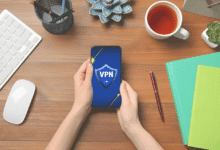Cybersecurity Basics: How to Keep Your Online Life Secure in 2023

Keep Your Online Life Secure
In this article, we will provide you with some tips on how to keep your online life secure. In today’s world, the internet has become an integral part of our daily lives. We use it to communicate with friends and family, shop for goods and services, bank online, and access other essential services. However, the convenience of the internet also poses significant risks to our online security and privacy. Cybercriminals are always looking for ways to exploit vulnerabilities in our online activities, leaving us vulnerable to identity theft, financial loss, and other security breaches.
-
Use Strong Passwords
One of the most basic cybersecurity practices is to use strong passwords. A strong password should be at least 12 characters long and include a mix of upper and lowercase letters, numbers, and special characters. Avoid using easily guessable passwords, such as your name or birthdate, and do not reuse passwords across multiple accounts. You can also use password managers to generate and store unique, complex passwords for each of your online accounts.
-
Keep Your Software Updated
Software updates often include security patches and bug fixes that address known vulnerabilities. Keeping your software up to date, including your operating system, web browser, and antivirus software, is essential to maintain the security of your device and protect your online privacy.
-
Use Two-Factor Authentication
Two-factor authentication (2FA) adds an extra layer of security to your online accounts by requiring a second form of verification in addition to your password. This could be a unique code sent to your phone or email, a fingerprint scan, or a security key. Enabling 2FA can significantly reduce the risk of unauthorized access to your online accounts.
-
Beware of Phishing Scams
Phishing scams are a common tactic used by cybercriminals to steal sensitive information such as usernames, passwords, and credit card numbers. These scams often involve impersonating a reputable company or organization and sending fraudulent emails or messages that appear to be legitimate. Be wary of unsolicited emails or messages, and do not click on links or download attachments from unknown sources.
-
Secure Your Wi-Fi Network
Your home Wi-Fi network can be vulnerable to attacks if not properly secured. To protect your network, ensure that you use a strong, unique password for your router, and enable network encryption. You should also disable remote management and restrict access to your network to authorized devices only.
-
Use Secure Websites
When browsing the internet, make sure to use secure websites that encrypt your data in transit. Look for websites with a padlock icon in the address bar and URLs that start with “https” instead of “http.” Avoid entering sensitive information on unsecured websites, such as public Wi-Fi networks.
-
Regularly Back Up Your Data
Backing up your data regularly is crucial to protect your important files and documents in case of a security breach or device failure. You can use cloud-based backup services or external hard drives to back up your data regularly.
-
Limit Your Online Footprint
Be mindful of the information you share online, including on social media platforms. Limit the amount of personal information you share, such as your birthdate, phone number, and home address. Also, adjust your privacy settings to control who can see your posts and personal information.
-
Be Cautious When Using Public Wi-Fi
Public Wi-Fi networks are often unsecured and can be easily compromised by cybercriminals. Avoid accessing sensitive information, such as online banking, when connected to public Wi-Fi networks. If you must use public Wi-Fi, consider using a virtual private network (VPN) to encrypt your internet traffic and protect your online privacy.
-
Stay Informed About Cybersecurity Threats
Staying informed about the latest cybersecurity threats can help you stay ahead of potential risks and take appropriate measures to protect your online security. Keep up-to-date with the latest news and trends in cybersecurity by following reputable sources, such as cybersecurity blogs and news sites.
Read More:5 Cybersecurity Threats That Could Cripple Your Business in 2023
Conclusion
maintaining good cybersecurity practices is crucial in today’s digital age. By following the tips outlined above, you can significantly reduce the risk of cyber threats and keep your online life secure. Remember to use strong passwords, keep your software updated, enable two-factor authentication, be cautious of phishing scams, secure your Wi-Fi network, use secure websites, regularly back up your data, limit your online footprint, be cautious when using public Wi-Fi, and stay informed about cybersecurity threats. Stay safe online!











